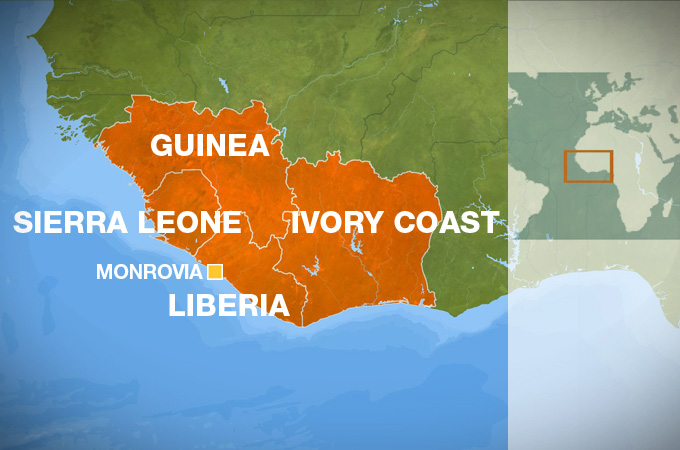Sirleaf wins Liberian elections by landslide
Ellen Johnson Sirleaf secures 90 per cent of vote but opposition leader says he will not accept the election result.

 |
| Liberia’s runoff election has been marred by an opposition boycott and pre-vote violence [Reuters] |
Africa’s first and only female president handily won re-election with 90.2 per cent of the vote, but her victory has
been rendered hollow and her government may struggle to prove its legitimacy because the opposition boycotted the poll.
Hours before the results were announced on Thursday, in an election that was supposed to solidify Liberia’s shaky peace, opposition leader Winston Tubman said he would not accept the outcome of this week’s presidential run-off.
With nearly nine-tenths of precincts reporting, National Election Commission chair Elizabeth Nelson announced late Thursday that Sirleaf had received 513,320 votes out of 565,391 tallied. Only 52,071 ballots, or 9.2 per cent, had been cast for Tubman, a former United Nations diplomat who, like Sirleaf, was educated at Harvard University.
Last week, Tubman called on his supporters to boycott Tuesday’s presidential runoff, and many polling stations closed early due to the dismal turnout.
Earlier on Thursday, Sirleaf’s office said that if re-elected, her administration would offer government posts to rivals in a spirit of reconciliation.
Questions over credibility
 |
Sirleaf, a Nobel peace laureate, was tipped to win a second term in the West African country after rival Winston Tubman dropped out of a November 8 runoff vote, alleging fraud in October’s first round of voting.
“She will reach out to key opposition leaders as well as members of other political parties and Liberian citizens in
general,” said Norris Tweah, the information ministry spokesman said on Thursday.
Tweah said that a government role for Tubman from the CDC party, was not ruled out.
“If it means she will form a national government of inclusion, she will do so. There are good people in the CDC camp,” he said.
Liberian police used tear gas, truncheons and live rounds to disperse hundreds of CDC supporters who had spilled onto a major roadway near their headquarters on Monday, leaving two dead. UN peacekeepers were present in support of the police.
Former UN diplomat Tubman, who was in the CDC headquarters at the time of the clash, has accused authorities of staging an attempt on his life, something the government denied.
“There was no time during the riot that the police tried to kill him,” Tweah said.
Tubman has not reacted to the possible offer but previously said the incident on Monday could make power-sharing “unlikely or impossible” and he was considering a legal challenge to the results of the runoff.
Tubman took about 33 per cent of the first-round ballots, to Johnson-Sirleaf’s 44 per cent.
Post-war reconstruction
The election is the first locally organised presidential vote in Liberia since 14 years of fighting ended in 2003. The
United Nations staged a previous vote in 2005 which also ended in a dispute.
Liberia wants to put the conflict behind it and use its iron and other resource wealth to rebuild.
Critics of Sirleaf, Africa’s first elected female head of state, say progress in her first term was too slow. A darling of the West for her post-war reconstruction efforts, Sirleaf is more controversial at home, where she has faced criticism over failed reconciliation efforts and what some see as a shady past.
With the results believed to be a foregone conclusion, Sirleaf will face an even tougher mandate in ruling the deeply divided nation still in anguish over the effects of its war.
Poverty and corruption are major challenges in Liberia, as is unemployment which is running at 80 per cent.